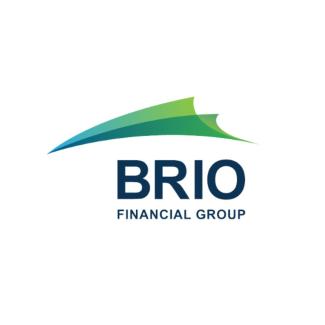
Has Your Income Property Become a Mattress Stuffed with Cash?
by Brandon Miller on Apr 27, 2022
A woman donated her grandfather’s footstool to Habitat for Humanity, not realizing there was over $43,000 stashed inside. Oops. Luckily, she was tracked down and reunited with the cash. Hiding money “under the mattress,” as it were, is an age-old habit. While having some cash in your earthquake/emergency kit is great, squirreling away stacks of it leaves you vulnerable to misfortune such as theft, fire, or your own forgetfulness.
Without realizing it, you could have hundreds of thousands, maybe even millions, that are sitting idle liked stashed cash if you have an income property purchased years ago that has shot up in value. Technically, your money is invested; maybe just not optimally invested anymore. Let me explain.
The stock market has a history of outpacing real estate when it comes to rate of return. So, why do people invest in real estate? Because it can offer one huge advantage—leverage. Your investment amount may be used to borrow a greater sum, potentially increasing your return.
Quick example: Invest $100k in a property that increases in value by 4% and you earn $4k. Or use that $100k to borrow $400k, and a 4% rate of return yields $20k on your half mil.
Leverage makes real estate attractive, but borrowed money becomes less useful to investors over the life of the loan. Early on, most of the mortgage payment goes toward loan interest. As more gets applied toward principal, write-offs steadily dwindle. The more you own, not owe, the less you have to deduct. And skyrocketing property values just add to the pile of money you’re sitting on that can’t be quickly accessed or invested in other opportunities.
What’s more, depreciation write-offs eventually disappear on investment properties, making it less attractive to hold onto past a certain period.
So, it might be time to question whether your highly appreciated investment property is still meeting your needs or if there’s a better option. The following strategies are just a few available options that can work alone or in any combination.
Sell It.
Selling provides access to all that equity locked up in your income property and gives you the freedom to do what you want with it. The down side is that you have to pay capital gains taxes on the increase in value from what you paid for the property. You also owe taxes on the amount you depreciated over the years.
If you don’t want up to a third of your proceeds to go to taxes, try these options:
Trade Up.
Owning an income property puts a great tool at your disposal known as a 1031 exchange. Under current tax law, follow the rules and you can defer your tax bill by selling your property and investing all or a portion of that in another income property. (Remember, you might owe capital gains taxes on the amount you keep.) Investing in a bigger property with a bigger mortgage lets you start again with the write-offs and depreciation.
Or you can get these same tax-deferral benefits—without the headaches of being a landlord—with a 1031 fund. Your money is pooled with other investors and managed by professionals, which can lead to greater returns than you might get from smaller property investments.
Give It Away.
This one always raises eyebrows. But there’s a way to benefit a favorite charity and yourself without paying capital gains taxes. With a charitable trust, you name an IRS-approved charity to become trustee and owner of the property. They then pay an amount you specify—between 5% and 50% of the asset’s value—to you or someone you designate over a specified number of years.
Let’s say, for example, that you have a rental house that’s valued at $750k and brings in $2,500 a month in rent. You could put it into a charitable trust and have the trust pay you $4,000 a month for the next 20 years. And you never have to take another late-night call from a renter about a broken pipe.
My point is that wads of cash tied up in an income property that’s outlived many of its deductions might be put to better use. Perhaps it’s time to pull your money out from under the metaphorical mattress and invest it in other opportunities.
For more insight, Brio is offering a free seminar titled “Property and Retirement: Leverage 101” on May 20. Find out more at https://www.briofg.com/upcoming-events
Brio does not provide tax or legal advice, and nothing contained in these materials should be taken as such. The opinions expressed in this article are for general informational purposes only and are not intended to provide specific advice or recommendations for any individual or on any specific security. It is only intended to provide education about the financial industry. To determine which investments may be appropriate for you, consult your financial advisor prior to investing. Any past performance discussed during this program is no guarantee of future results. Any indices referenced for comparison are unmanaged and cannot be invested into directly. As always please remember investing involves risk and possible loss of principal capital; please seek advice from a licensed professional.
Brio Financial Group is a registered investment adviser. SEC Registration does not constitute an endorsement of Brio by the SEC nor does it indicate that Brio has attained a particular level of skill or ability. Advisory services are only offered to clients or prospective clients where Brio Financial Group and its representatives are properly licensed or exempt from licensure. No advice may be rendered by Brio Financial Group unless a client service agreement is in place.
